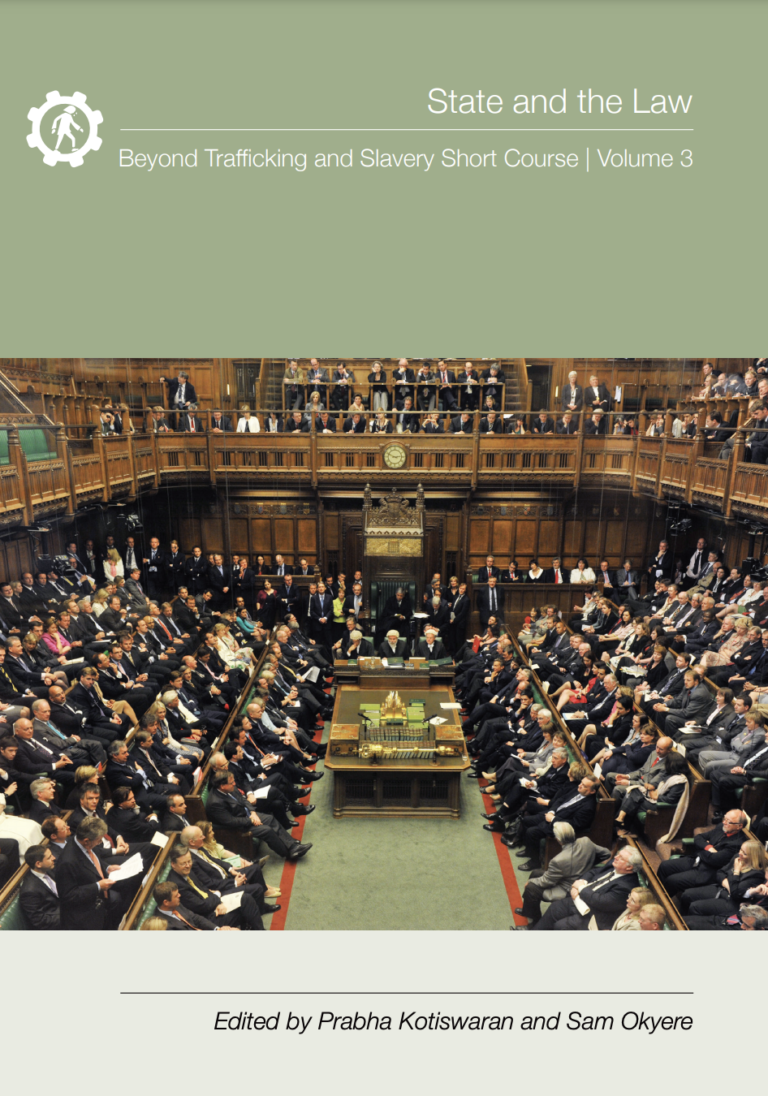Edited by Prabha Kotiswaran and Sam Okyere.
This is the third volume of the series Beyond Trafficking and Slavery Short Course.
The articles in this volume outline and critically interrogate the role of the state, national legislation and international conventions in shaping the understanding and construction of those conditions deemed to constitute modern forms of slavery. Our contributors further highlight the role of the state and national legislation in creating or allowing the varying forms of insecurities that necessitate entry into various precarious engagements. It is evident from these that the state plays a hugely significant role in the modern slavery discourse. It can be either a force for good or bad. Those who wish to see human rights and social justice realised at much higher level than that found in abolitionist discourse must recognise and be willing to engage politically with the state sponsored system of injustice.

